Hey there! Are you or someone you know struggling with an eating disorder and looking for ways to cope? Look no further! In this article, we’ll explore some effective coping strategies that can help you navigate the challenges and uncertainties that come with dealing with an eating disorder. From self-care routines to seeking support, we’ve got you covered. So, let’s dive in and discover ways to nurture a healthier body and mind!
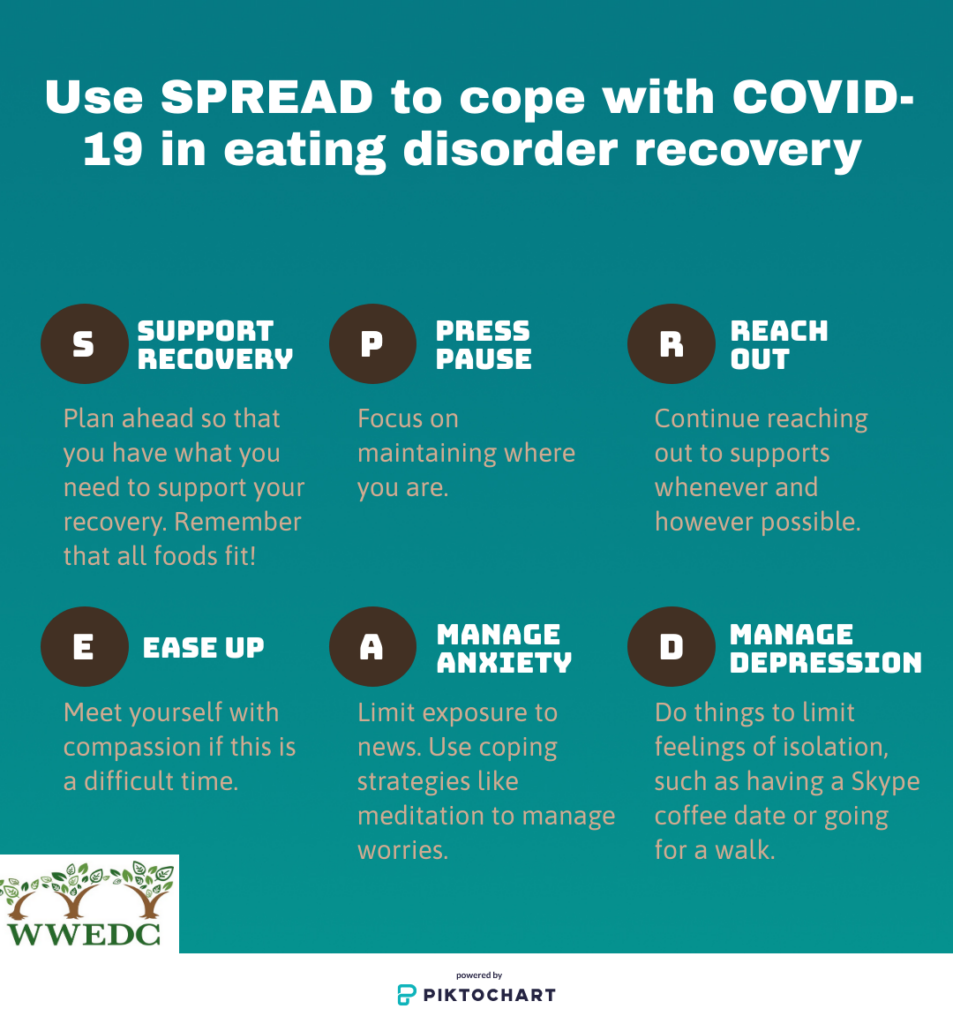
Understanding Eating Disorders
What are eating disorders?
Eating disorders are serious mental illnesses that impact a person’s relationship with food, eating, and body image. They are characterized by extreme emotions, attitudes, and behaviors surrounding food, weight, and body shape. Individuals with eating disorders often have distorted perceptions of their body and engage in unhealthy eating habits that can have severe physical and psychological consequences.
Common types of eating disorders
There are several common types of eating disorders, each with its own distinct characteristics and symptoms:
-
Anorexia nervosa: People with anorexia nervosa have an intense fear of gaining weight, even when they are significantly underweight. They limit their food intake, often leading to extreme weight loss and malnutrition.
-
Bulimia nervosa: Bulimia nervosa involves episodes of binge eating, followed by compensatory behaviors such as purging (vomiting, using laxatives) or excessive exercise. Individuals with bulimia often have a normal weight or are slightly overweight.
-
Binge eating disorder: Binge eating disorder is characterized by recurrent episodes of uncontrollable overeating, accompanied by feelings of guilt, shame, and distress. Unlike bulimia, there are no regular compensatory behaviors.
-
Other specified feeding or eating disorders: This category includes eating disorders that do not meet the full criteria for the above disorders but still have significant symptoms and impairment.
Causes of eating disorders
The development of eating disorders is influenced by various factors, including a combination of genetic, environmental, psychological, and cultural factors. Some common risk factors include:
-
Genetics: Having a family history of eating disorders or mental health conditions may increase the likelihood of developing an eating disorder.
-
Environmental factors: Societal pressure to be thin, cultural beauty standards, and a preoccupation with appearance can contribute to the development of eating disorders.
-
Psychological factors: Low self-esteem, body dissatisfaction, perfectionism, and difficulty managing emotions or coping with stress can contribute to the development of eating disorders.
-
Co-occurring mental health disorders: Eating disorders often coexist with other mental health conditions such as depression, anxiety, or substance abuse.
It’s important to note that while these factors can contribute to the development of eating disorders, they do not guarantee that someone will develop one. Eating disorders are complex conditions with multifaceted causes.
Recognizing the Signs and Symptoms
Physical signs of eating disorders
Eating disorders can have significant physical consequences. Some common physical signs and symptoms include:
-
Extreme weight loss or fluctuations: Rapid or significant weight loss, or extreme fluctuations in weight, may be a sign of an eating disorder.
-
Changes in menstrual cycle: Women with eating disorders often experience irregularities or loss of their menstrual period.
-
Gastrointestinal problems: Frequent bloating, constipation, stomach cramps, or acid reflux can be indications of an eating disorder.
-
Dental health issues: Frequent vomiting or laxative use can lead to tooth enamel erosion, cavities, and gum problems.
-
Changes in appearance: Hair loss, dry skin, and brittle nails can occur as a result of malnutrition.
Psychological signs of eating disorders
In addition to physical symptoms, there are also psychological signs and symptoms associated with eating disorders:
-
Preoccupation with food, weight, and body image: Constant thoughts about food, weight loss, and body shape can be a sign of an eating disorder.
-
Distorted body image: Individuals with an eating disorder often have a distorted perception of their body, seeing themselves as larger than they really are.
-
Mood changes: Depression, anxiety, irritability, and mood swings may be present in individuals with eating disorders.
-
Social withdrawal: People with eating disorders may isolate themselves from friends and family due to shame, guilt, or embarrassment about their eating habits.
Behavioral signs of eating disorders
Certain behaviors may also indicate the presence of an eating disorder:
-
Dietary restriction: Restricting or severely limiting food intake, engaging in fad diets, or avoiding certain food groups are common behaviors among those with eating disorders.
-
Compensatory behaviors: Purging, excessive exercise, using laxatives or diet pills, or fasting after a binge are examples of compensatory behaviors associated with eating disorders.
-
Hiding food or eating habits: Secrecy around food, eating in private, or making excuses to avoid meals with others can be signs of an eating disorder.
-
Rigid exercise routines: Excessively intense or compulsive exercise patterns can indicate an unhealthy relationship with food and body image.
Recognizing these signs and symptoms is crucial for identifying and addressing eating disorders promptly.
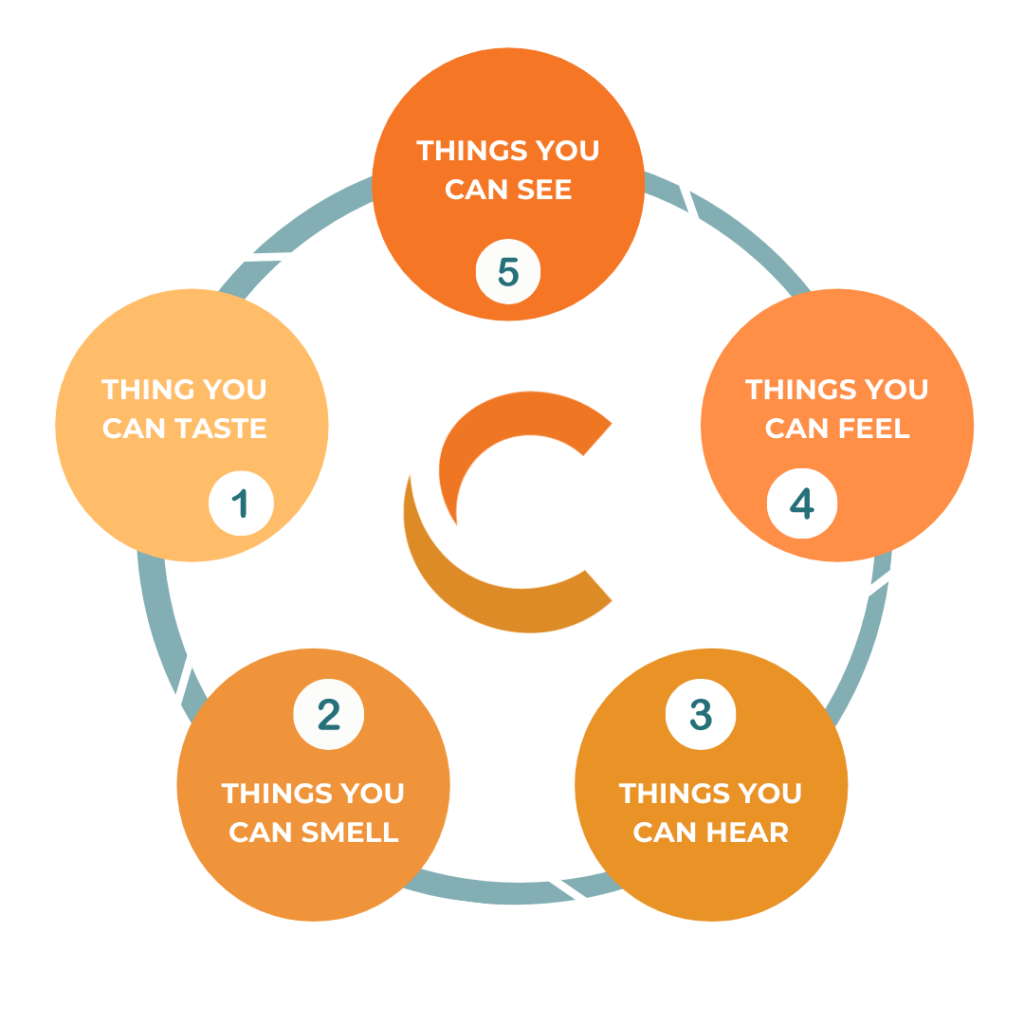
Seeking Professional Help
Importance of professional assistance
If you suspect that you or someone you know may have an eating disorder, seeking professional help is essential. Eating disorders are complex and require specialized treatment from a team of healthcare professionals, including doctors, therapists, and nutritionists.
-
Medical evaluation: A medical evaluation is necessary to assess physical health, identify any complications related to the eating disorder, and determine the appropriate course of treatment.
-
Therapy: Psychotherapy, such as cognitive-behavioral therapy (CBT), is often an integral part of eating disorder treatment. It can help address underlying emotional issues, unhealthy thoughts and behaviors, and develop healthier coping mechanisms.
-
Nutritional counseling: Working with a qualified nutritionist can help establish a balanced approach to food, address nutritional deficiencies, and develop a healthy meal plan.
Choosing the right treatment provider
Finding the right treatment provider is crucial for successful recovery from an eating disorder. Consider the following factors when choosing a treatment provider:
-
Credentials and expertise: Look for professionals who specialize in eating disorders and have experience in this area.
-
Personal fit: It’s important to feel comfortable and supported by your treatment team. Trust and rapport with the provider are vital for effective communication and progress.
-
Comprehensive care: Seek out providers who offer a comprehensive approach to treatment, addressing not only the physical aspects but also the psychological and emotional components of eating disorders.
Different treatment approaches
There are various treatment approaches available for eating disorders. The most effective treatment plans are often individualized and tailored to the unique needs of each person. Some common treatment approaches include:
-
Individual therapy: One-on-one therapy sessions provide a safe space to explore emotions, thoughts, and behaviors related to the eating disorder.
-
Group therapy: Participating in group therapy can provide support, validation, and a sense of community with others going through similar experiences.
-
Family therapy: Involving partners, parents, or other family members in therapy can help address familial dynamics, improve communication, and establish a supportive environment for recovery.
-
Medication: In some cases, medication may be prescribed alongside therapy to manage co-occurring mental health conditions such as depression or anxiety.
-
Inpatient or outpatient programs: Depending on the severity of the eating disorder, intensive treatment programs, either residential or outpatient, may be recommended.
Each person’s journey to recovery is unique, and treatment plans may evolve over time based on individual progress and needs.
Building a Support System
The role of family and friends
Having a strong support system is vital for individuals with eating disorders. Family and friends play a crucial role in providing emotional support, encouragement, and understanding throughout the recovery process. Here are some ways loved ones can support someone with an eating disorder:
-
Educate yourself: Learn about eating disorders to gain a better understanding of what your loved one is going through. This knowledge can help you provide informed support and reduce misunderstandings.
-
Provide a non-judgmental environment: Create a safe and accepting environment where your loved one feels comfortable sharing their struggles, thoughts, and feelings without fear of judgment or criticism.
-
Avoid commenting on appearance or food: Be mindful of the language you use around food, body image, and weight. Avoid making comments or engaging in diet talk that could trigger or worsen their symptoms.
-
Encourage professional help: Support and encourage your loved one to seek professional help from qualified healthcare providers who specialize in treating eating disorders.
-
Be patient and understanding: Recovery from an eating disorder takes time, and there will likely be ups and downs along the way. Show patience, understanding, and empathy, providing a consistent source of support.
Support groups and therapy
Support groups and therapy can be invaluable resources for individuals with eating disorders and their loved ones. Support groups offer a sense of community and connection, providing a safe space to share experiences, gain insights, and receive support from others who can relate to their struggles. Group therapy sessions, led by trained professionals, can also be a beneficial addition to individual therapy.
Online communities and helplines
In addition to in-person support, online communities and helplines can provide valuable support and guidance for individuals with eating disorders. These resources offer a space for individuals to share their experiences, seek advice, and connect with others who understand what they’re going through. Helplines provide immediate support for individuals in crisis or those who need someone to talk to.
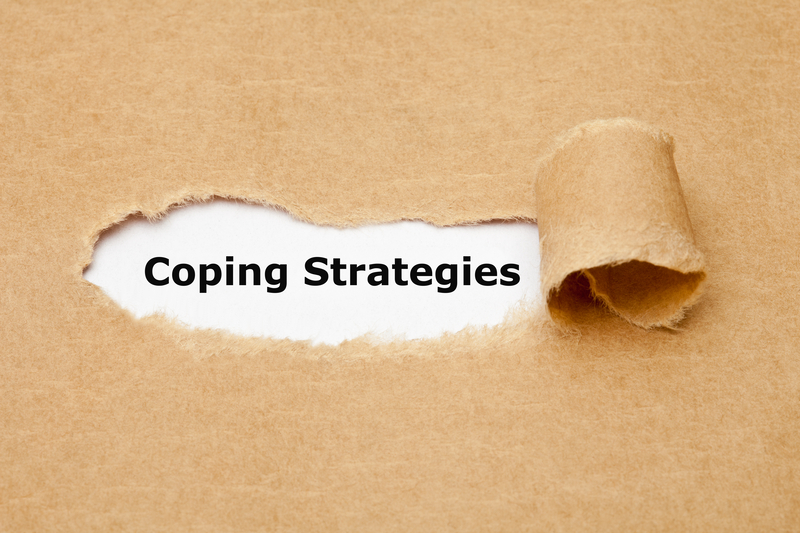
Developing Healthy Coping Mechanisms
Finding alternative ways to manage stress
Developing healthier coping mechanisms is crucial for individuals with eating disorders to manage stress and emotions in a more balanced and sustainable way. Here are some alternative ways to cope with stress:
-
Exercise for enjoyment: Engage in physical activity that you genuinely enjoy, such as dancing, hiking, or playing a sport. Focus on the pleasure and fun of movement rather than using it solely as a means to control your weight or shape.
-
Practice mindfulness and meditation: Mindfulness and meditation can help reduce stress and increase self-awareness, allowing you to develop a healthier relationship with your thoughts, emotions, and body.
-
Engage in creative outlets: Explore creative activities such as painting, writing, or playing a musical instrument. These outlets can provide a sense of expression and fulfillment.
-
Learn relaxation techniques: Deep breathing exercises, progressive muscle relaxation, and guided imagery can help relax the mind and body, reducing feelings of anxiety and stress.
Practicing self-care and self-compassion
Prioritizing self-care and self-compassion is essential for individuals on the path to recovery from an eating disorder. Here are some self-care strategies to consider:
-
Set boundaries: Learn to recognize and set boundaries in your relationships, ensuring that your needs are respected and balanced.
-
Engage in self-care activities: Make time for activities that bring you joy, relaxation, and fulfillment. This could include taking a bath, reading a book, or engaging in a hobby you enjoy.
-
Practice self-compassion: Be kind and compassionate towards yourself. Challenge negative self-talk and cultivate a positive and supportive inner dialogue.
-
Seek professional help when needed: If you’re struggling with difficult emotions or experiences, don’t hesitate to reach out to a therapist or counselor for support.
Identifying triggers and avoiding them
Identifying triggers that contribute to unhealthy behaviors is an important step in recovery. Triggers can be certain situations, people, places, or even specific thoughts or emotions that elicit negative responses related to food, body image, or self-worth. Once you’ve identified these triggers, you can work on developing strategies to avoid or cope with them more effectively.
Creating a Balanced Meal Plan
Working with a qualified nutritionist
Working with a qualified nutritionist is crucial for developing a balanced meal plan that meets your individual nutritional needs. A nutritionist can help:
-
Assess nutritional needs: A nutritionist can evaluate your dietary needs based on factors such as age, sex, activity level, and any specific health considerations.
-
Address deficiencies: If you have nutritional deficiencies caused by the eating disorder, a nutritionist can help you identify these deficiencies and create a plan to address them.
-
Provide meal planning guidance: A nutritionist can create personalized meal plans that suit your preferences, dietary restrictions, and nutritional requirements.
Meal planning and portion control
Meal planning and portion control are essential for individuals with eating disorders to establish a healthy relationship with food. Some strategies to consider include:
-
Regular meal patterns: Establish regular eating patterns by having meals and snacks at consistent times throughout the day.
-
Balanced meals: Aim for meals that include a variety of nutrients, such as lean proteins, carbohydrates, healthy fats, and fruits/vegetables.
-
Mindful eating: Practice mindful eating by paying attention to physical hunger and fullness cues, eating slowly, and savoring each bite.
-
Portion control: Work with a nutritionist to develop an understanding of appropriate portion sizes and incorporate them into your meal planning.
Understanding nutritional requirements
It’s important to understand your individual nutritional requirements and ensure that you’re meeting them through a balanced meal plan. These requirements may vary based on factors such as age, sex, activity level, and any underlying health conditions. A nutritionist can help you understand and meet your specific nutritional needs.
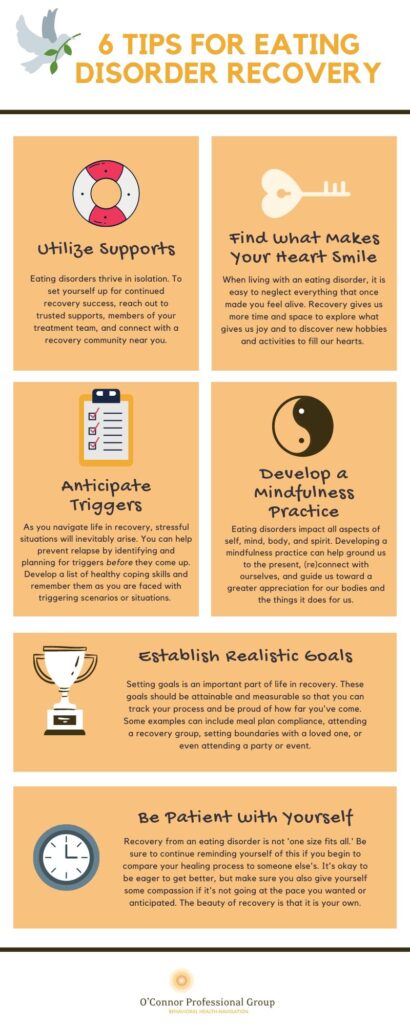
Exploring Therapeutic Interventions
Cognitive-behavioral therapy (CBT)
Cognitive-behavioral therapy (CBT) is a widely used treatment approach for eating disorders. It focuses on identifying and challenging distorted thoughts and beliefs surrounding food, weight, and body image. CBT aims to develop healthier attitudes and behaviors related to eating and body image, helping individuals shift towards a more positive and balanced mindset.
Dialectical behavior therapy (DBT)
Dialectical behavior therapy (DBT) is a therapeutic approach that combines aspects of cognitive-behavioral therapy with mindfulness techniques. It emphasizes skills development in areas such as emotion regulation, distress tolerance, and interpersonal effectiveness. DBT can help individuals with eating disorders develop healthier coping mechanisms and improve their relationships with themselves and others.
Interpersonal therapy (IPT)
Interpersonal therapy (IPT) focuses on the relationship between interpersonal conflicts and emotional distress. It aims to improve communication skills, resolve conflicts, and enhance relationships with others. IPT can help individuals struggling with eating disorders address underlying interpersonal issues that may contribute to their disordered eating behaviors.
Managing Negative Thoughts and Body Image
Challenging distorted thoughts
One of the primary goals of therapy in treating eating disorders is to challenge and reframe distorted thoughts related to body image and self-worth. Some strategies to challenge negative thoughts include:
-
Question the evidence: Challenge the validity of negative thoughts by examining the evidence supporting them. Often, distorted thoughts are not based on reality or accurate information.
-
Consider alternative perspectives: Encourage yourself to consider alternative viewpoints or interpretations of situations, offering a more balanced and realistic perspective.
-
Practice thought-stopping: When negative thoughts arise, interrupt them by mentally saying “stop” or using a physical action like snapping a rubber band on your wrist. Immediately redirect your focus to positive or neutral thoughts.
Building a positive body image
Developing a positive body image is an important aspect of recovery from an eating disorder. These strategies can help promote a healthier relationship with your body:
-
Focus on functionality: Shift your focus from appearance to what your body is capable of doing. Recognize and appreciate the strength, flexibility, and resilience of your body.
-
Surround yourself with positive influences: Surround yourself with supportive and body-positive individuals who promote self-acceptance and challenge societal beauty standards.
-
Challenge beauty ideals: Recognize that beauty comes in all shapes, sizes, and colors. Celebrate diversity and challenge the narrow definitions of beauty propagated by the media.
Practicing mindfulness and acceptance
Mindfulness and acceptance techniques can help individuals with eating disorders cultivate a non-judgmental and compassionate attitude towards themselves. These practices can help individuals become more aware of their thoughts, emotions, and sensations without reacting to them impulsively. They can also foster self-acceptance and promote a sense of calm.
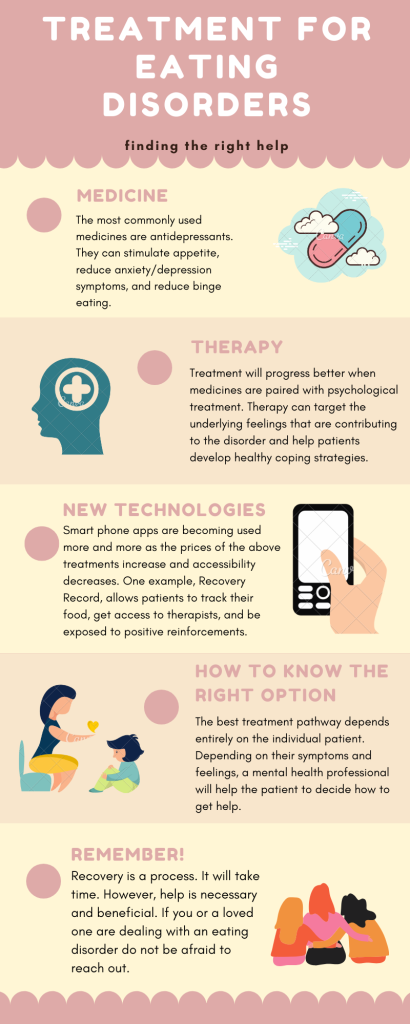
Stress Reduction and Relaxation Techniques
Deep breathing exercises
Deep breathing exercises are a simple yet effective technique for reducing stress and promoting relaxation. The following deep breathing exercise can be done anywhere, anytime:
- Find a comfortable seated position or lie down.
- Close your eyes and take a deep breath in through your nose, filling your belly with air.
- Hold the breath for a moment, then slowly exhale through your mouth, releasing any tension or stress.
- Repeat this process several times, focusing on the sensation of the breath entering and leaving your body.
Progressive muscle relaxation
Progressive muscle relaxation is a technique that involves tensing and relaxing different muscle groups throughout the body to promote relaxation and reduce muscle tension. Here’s how to practice progressive muscle relaxation:
- Find a comfortable position and close your eyes.
- Starting with your toes, consciously tense the muscles in that area for a few seconds, then release and relax them.
- Gradually work your way up through the body, tensing and relaxing each muscle group, including legs, hips, abdomen, arms, shoulders, and face.
- Focus on the sensation of relaxation and release as you go through each muscle group.
Meditation and yoga
Meditation and yoga are practices that can help reduce stress, increase self-awareness, and promote relaxation. They involve focused attention, deep breathing, and gentle movement to improve overall well-being. Engaging in regular meditation or yoga sessions can be beneficial in managing stress and promoting a sense of calm.
Conclusion
Understanding eating disorders is crucial for identifying and addressing these complex mental illnesses. Recognizing the signs and symptoms, seeking professional help, building a support system, developing healthy coping mechanisms, creating a balanced meal plan, exploring therapeutic interventions, managing negative thoughts and body image, and incorporating stress reduction techniques are all important aspects of the recovery process. Remember, recovery takes time and patience, but with the right support and treatment, individuals with eating disorders can regain their physical and emotional well-being.